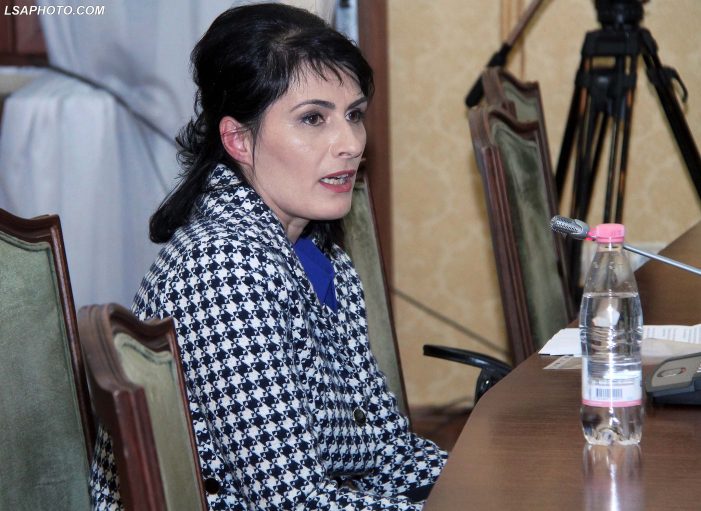
Temporary Prosecutor General Arta Marku has removed today director of the decriminalization directorate Rovena Gashi. Only yesterday, Rovena Gashi had indicted PDIU deputy Aqif Rakipi, a close ally of Prime Minister Rama, under the decriminalization law. Instead, she has nominated Arqile Koça, another candidate shortlisted by the PS for the function of Temporary Prosecutor General, at the head of the decriminalization directorate.
The sudden shifts in the Prosecution Office come after a meeting between Marku and Minister of Interior Affairs Fatmir Xhafaj.
As I explained before, the nomination of Art Marku as Temporary Prosecutor General was based on a legal opinion provided by the international legal missions OPDAT and EURALIUS, in which they claim that the Temporary Prosecutor General “is rather comparable with the figure of a deputy Prosecutor General,” and could therefore be elected by a simple majority. This opinion has been publicly supported by US Ambassador Donald Lu and EU Ambassador Romana Vlahutin.
However, it now appears that Marku acts not as a deputy but as a fully fledged Prosecutor General, firing and hiring prosecutors at will. The problem is that her actions are completely unlawful and unconstitutional.
Constitution, art. 149/a(1)(a), clearly states that “appointment” and “transfer” of prosecutors is the task of the High Prosecutorial Council (KLP) and not the Prosecutor General. However, the KLP has not yet been formed in violation of the Constitution.
Therefore, we follow Law 97/2016 On the organization and functioning of the prosecution in the Republic of Albania, art. 109(3), which states that until the KLP is installed the competences of the Prosecutor General are determined by Law no. 96/2016 On the Status of Judges and Prosecutors in the Republic of Albania, art. 160(2):
2. Until the establishment of the High Prosecutorial Council, the General Prosecutor shall continue exercising the following competences according to the rules foreseen in this Law:
a) Appoint the candidate magistrates graduated in 2016 in accordance with Part III Chapter II of this law at least two months after the entry into force of this law;
b) Take decisions to assign to positions the candidate magistrates graduated in 2016 in accordance with Part III, Chapter III of this law within three months from the entry into force of this law;
c) Suspend prosecutors according to the procedure and criteria foreseen in the law;
ç) Supervise the training of prosecutors according to this law and the law “On governance institutions of the justice system”;
d) Conduct the performance evaluation as foreseen in the transitory provisions of this law, including the assistance to the transitional re-evaluation of prosecutors based on the law “On transitional re-evaluation of judges and prosecutors in the Republic of Albania”;
dh) Certify the end of appointment in case of resignation and reaching the retirement age.
Nowhere does this law, which currently holds on the entire territory of the Republic of Albania, gives Marku the right to dismiss or appoint prosecutors as she has done today. In fact, until the installation of the KLP no one can dismiss or appoint prosecutors except in the situations cited above.
In the meantime, the silence of the international missions in Tirana is more deafening than the loudest roar of injustice. They all profess support for the judicial reform, but in fact undermine it with half-baked legal opinions and the leeway they give to a Prime Minister now occupying all branches of government.
One thing is clear: the Rama government continues to rule the country as if the judicial reform didn’t happen. Minister Xhafaj waltzes into the Prosecution Office as if he is at home. Marku appoints prosecutors as if she has no legal constraints on her power, and nowhere, nowhere is a single effect of the judicial reform to be seen.
The judicial reform as implemented by the Rama government has had a single strategic aim: the paralysis and capture of the entire judicial system by the Prime Minister. With a Temporary Prosecutor General with indefinite mandate, and an endless vetting procedure with few resources and without any deadline, stalled procedures for all major judicial institutions, and an emaciated Constitutional Court and High Court, Edi Rama has free reign.

